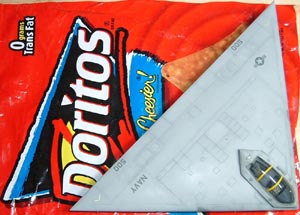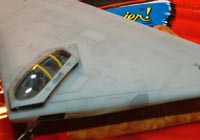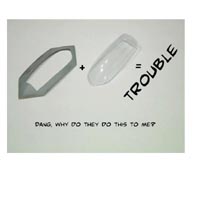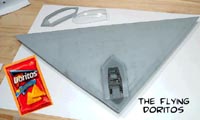Anigrand 1/72 A-12A Avenger 2
|
 |
History
In the mid-1980's, U.S. Navy awarded the ATA (Advanced Tactical Aircraft)
program as a replacement for the A-6 Intruder. The key improvement over
the existing aircraft was stealth ability. In 1988, General Dynamics/McDonnell
Douglas were selected to develop a subsonic twin jet carrier-based ATA
for attack at night or in bad weather, the A-12 Avenger II. The principal
program office was set up at General Dynamics, McDD responded for the
project design. The first prototype was expected to complete in 1990.
After 3 years of work, the A-12 contractors revealed serious engineering
problems and budget over-runs, which caused the first flight delay. In
1991, Secretary of Defense terminated the A-12 contract after the prototype
completion failure. In 1993, the Fort Worth Aviation Heritage Association
launched the A-12 restoration program. General Dynamic provided the A-12
engineering hardware for this restoration. The full-scale mock-up was
finally completed and displayed publicly in the museum at Alliance Airport,
Fort Worth. Thanks to the Anigrand web page for this bit of trivia!
 The Flying Doritos The Flying Doritos
Well, for any of you who have seen a previous build of the 1/48 scale
Collect-aire resin kit of the A-12A by myself and a few of my colleagues,
you'll note a striking similarity in engineering of the kit parts. Where
the Collect-aire kit had a few issues with some of its parts, the Anigrand
Avenger II has some as well. The general break down of the main components
are as follows, upper and lower central fuselage, and each folding wing
tip is a solid component, all these parts when dry fit went together with
little problem. Upon fitting the wing tips to the central fuselage, you’ll
need to be creative. A few modelers have opted to fold the wing tips;
this is to save time and possible nightmares in the final assembly of
the kit. However, the kit, to me, is only fully appreciated when you can
see it in its overall shape, like a Doritos corn chip. Presenting the
kit with wings folded only presents another problem, like how to represent
the wing fold hinges and gear. Neither kits of this aircraft have a realistic
wing fold mechanism, so as with my Collect-aire kit, this Avenger had
its wings in flying configuration.
 The
cockpit on this kit is a bit sparse, as with most of the Anigrand products,
but it's a good start if you want to super detail. The original seats
are sad representations of the N.A.C.E.S. seats, so a pair of nicely done
Pavla resin seats have been substituted. Also no control stick or HUD
is in the box, so you'll end up scratch building them or robbing an appropriate
donor kit. The
cockpit on this kit is a bit sparse, as with most of the Anigrand products,
but it's a good start if you want to super detail. The original seats
are sad representations of the N.A.C.E.S. seats, so a pair of nicely done
Pavla resin seats have been substituted. Also no control stick or HUD
is in the box, so you'll end up scratch building them or robbing an appropriate
donor kit.
Finally the last nightmare of this or any kit is the fitting of the
canopy, in the case of this A-12 it's the most difficult part of assembly.
The case in point is fitting the thin and very clear vac canopy to a resin
frame which is then fitted to the upper fuselage, easy you say? NOT! It
took months of consideration to finally get myself back to the work bench
to even attempt this procedure, and then with no less than 2 hours of
careful fitting in what I hope is a reasonable final product. In the end
it was determined to position the canopy in the open position on make-shift
actuators. Not the cleanest of looks, but in the end the fitting got the
better of me, this time.
 Anigrand
did a great job in casting and engineering, with a few of the above little
quirks, overall I'd rate this kit a 8 on the Fun-O-Meter, 9 for accuracy,
and 6 for ease of assembly. Don't be turned off by the resin nature of
this or any of their kits, they represent a good value with subject matter
that won't be found elsewhere. Anigrand
did a great job in casting and engineering, with a few of the above little
quirks, overall I'd rate this kit a 8 on the Fun-O-Meter, 9 for accuracy,
and 6 for ease of assembly. Don't be turned off by the resin nature of
this or any of their kits, they represent a good value with subject matter
that won't be found elsewhere.
|
|
